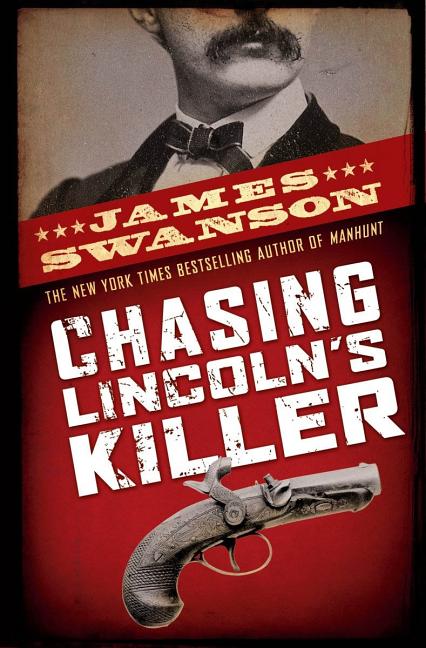Audiobook Excerpt narrated by Will Patton
Chasing Lincoln's Killer |
Audiobook excerpt narrated by Will Patton.
Translate this transcript in the header View this transcript Dark mode on/off
Will Patton: This story is true. All the characters are real, and were alive during the great manhunt of April, 1865. Their words are authentic. In fact, all text appearing within quotation marks comes from original sources: letters, manuscripts, trial transcripts, newspapers, government reports, pamphlets, books, and other documents. What happened in Washington, DC in the spring of 1865, and in the swamps and rivers, forests and fields of Maryland and Virginia during the following 12 days is far too incredible to have been made up.
From 1861 through 1865, the United States endured a bloody Civil War between northern and southern states. The conflict had begun long before, over the right to own slaves and states' right to secede, that is to leave the Union if they disagreed with the government. In the north, where the economy was based on factories and industry, most citizens considered slavery brutal, inhuman, and immoral. In the south, where the economy was dependent on slave labor, citizens believed they should have the right to own slaves. They also believed that if the national government disagreed with that right, southern states had the right to secede.
Lincoln, elected President of the United States in 1860, just before the outbreak of the Civil War, held two strong beliefs: that slavery was morally wrong, and that the North and South must remain united as one country. Southern soldiers dressed in gray uniforms were called Rebels and Confederates. Northern soldiers, dressed in navy blue uniforms, were referred to as Union soldiers, or Yankees. The war lasted four years, and resulted in more than 600,000 casualties, half of them lost to disease. After several bloody battles and costly, prolonged campaigns, Confederate General Robert E. Lee surrendered the Army of Northern Virginia to Union General Ulysses S. Grant in the Virginia town of Appomattox Courthouse. But other rebel armies continued fighting in the field. Lee's surrender did not mean the end of the war, or of danger.
Some Confederate sympathizers mourned the outcome of the war, the Lost Cause, would forever change the Southern way of life, including slavery. Many Southerners were unwilling to give up the Lost Cause, believing they could continue to fight, and eventually win, or die trying. It was a dangerous place and time. With Lee's surrender, soldiers shed their uniforms, turned in their weapons, and rode or walked home to resume their lives. Spies and Confederate sympathizers, as well as soldiers, filled the Union capitol, Washington, DC. People could not tell based on clothing, geography, or appearance which side of the conflict people supported.
This audio excerpt is provided by Scholastic Audio.



